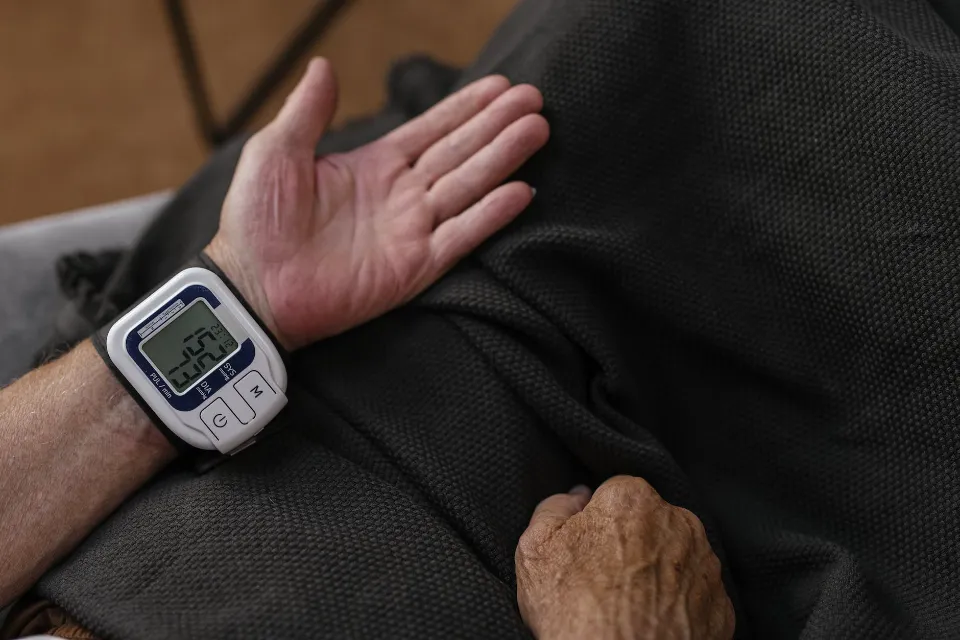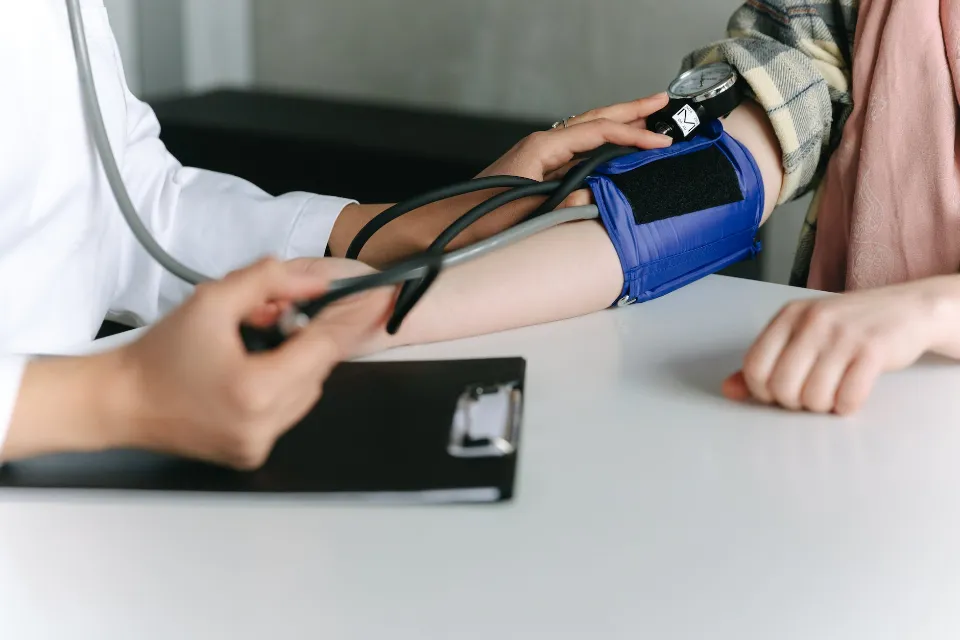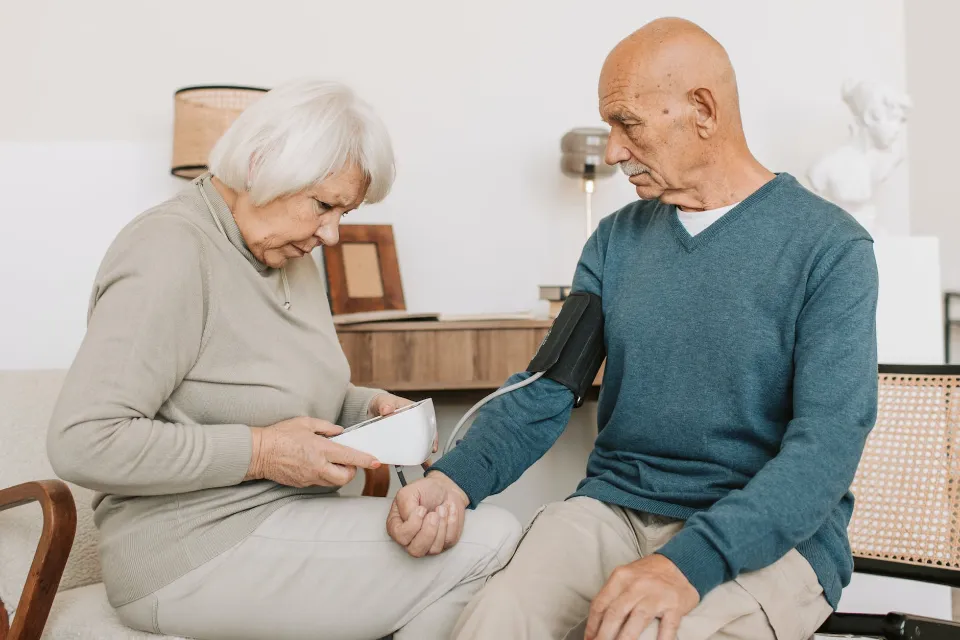Any type of surgery, even routine surgery, carries some risks. Your blood pressure fluctuating is one risk. The American Heart Association states that a healthy blood pressure reading is less than 120/80 millimeters of mercury. Low blood pressure is defined as a reading that is less than 90/60 mm Hg, though it can differ from person to person and environment to environment.
For a variety of reasons, your blood pressure may fall during or after surgery. There are many people who experience low blood pressure after surgery. What causes this, and how well is post-operative hypotension managed?
What Causes Low Blood Pressure After Surgery?
Anesthesia
Blood pressure can be impacted by the anesthesia used during surgery. Both when the medication is about to wear off and while you are sleeping, changes can occur. Anesthesia may cause some patients to experience lower blood pressure following surgery. In this case, your doctor will carefully monitor you and give you intravenous medications to help return your blood pressure to normal.
Septic Shock
A viral, bacterial, or fungal infection can result in sepsis, a potentially fatal complication. Small blood vessel walls begin to leak fluid into the interstitial tissues as a result of it. Septic shock is a serious side effect of sepsis, and severe postoperative hypotension is one of its symptoms. Antibiotics, volume resuscitation, and monitoring are some of the treatments used in hospitals to treat sepsis. You might be given a vasopressor after surgery to treat hypotension. They aid in blood vessel constriction, which raises blood pressure.

If you are in the hospital recovering from surgery, you are more susceptible to these infections. Sepsis is treated in a hospital by using antibiotics, giving extra fluids, and monitoring. You may be prescribed drugs referred to as vasopressors to treat low blood pressure. These aid in constriction of your blood vessels, raising blood pressure.
Hypovolemic Shock
Hypovolemic shock occurs when the body is put into a state of shock due to severe blood loss. Blood pressure can drop if a lot of blood is lost during surgery. It is more challenging to meet the needs of the organs when blood volume is decreased because it also affects blood supply.
You will receive hospital treatment if hypovolemic shock causes low blood pressure after surgery. The goal of treatment is to replenish and restore circulating volume in the body before damage occurs to vital organs (especially the kidneys and heart).
Is Low Blood Pressure After Surgery Serious?
You run the risk of oxygen deprivation harming your brain and heart if your blood pressure is extremely low. Low numbers at this level are more likely to occur when you are receiving hospital treatment for an emergency like a heart attack or blood loss.
Low blood pressure, however, typically doesn’t need to be treated.
On the side of caution is what you should do. If you’re concerned about ongoing low blood pressure, you should see your doctor, especially if you’re experiencing symptoms, including:
- Dizziness
- Blurry vision
- Lightheadedness
- Fainting
- Nausea
- Cold clammy skin
- Dehydration
Your doctor will be able to tell if there’s another health issue going on or if you need to add or change medications.
How to Treat Low Blood Pressure After Surgery?
Following surgery, low blood pressure increases the risk of oxygen deprivation harm to vital organs like the heart and brain. When a patient is admitted to the hospital due to an emergency condition like blood loss or a myocardial infarction, postoperative hypotension occurs.
When a patient is sent home with low blood pressure, though, it can become dangerous if the patient is not given the right first aid. Here are some home remedies for low blood pressure after surgery as follows:

Get Up Slowly
This facilitates blood circulation by gradually stretching blood vessels. After waking up, avoid getting up right away. To sit with your feet on the ground, slowly transition from lying down. For at least 60 seconds, maintain this posture to give your body time to adjust. Keep swinging your legs slowly while remaining on the bed. Prior to standing up, maintain this position for a minute or two.
Healthy Diet
The reason is that both substances cause dehydration leading to a drop in blood pressure. Some people have a habit of eating large, high-carb meals, this can cause a sudden drop in blood pressure right after eating, in what is known as postprandial hypotension or hypotension. standing position. In order to raise blood pressure for the group of people who have low blood pressure after surgery, you should continue to eat small, low-carb meals and supplement them with snacks in between meals.
The symptoms of anorexia are common among post-operative patients. During this time, the lack of adequate nutrition is also the cause of low blood pressure after surgery. At this point, the body needs a lot of energy to recover. You need to provide enough energy for your body, so you should choose foods rich in nutrients, especially protein because protein is especially necessary for the wound healing process.
The patient should take salt supplements or food to prevent hypotension after surgery, according to the advice of the doctor.
Drink Enough Water
Blood pressure drops after surgery are caused by dehydration. To effectively prevent low blood pressure after surgery, you must consume more water. The signs of low blood pressure can be avoided by drinking more filtered water and electrolyte-rich beverages like coconut water.
Conclusion
Overall, there are a number of factors that can cause your blood pressure to fluctuate after surgery, and you occasionally may experience low blood pressure, but there are proactive steps you can take to improve it, like a healthy diet, soothing wake-up calls, etc.



